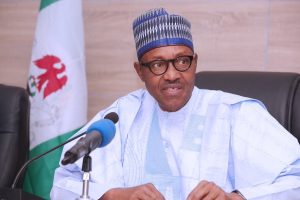- Entity to grow to N15trn in assets, capital
- But Moody’s says Nigeria needs $3trn yearly for 30 years to meet spending gaps
- World Bank estimates $14.2bn is required for 10 years
- N4.37trn budgeted for capex in 2021 budget
- IMF to Nigeria: 0.25% of GDP infrastructure stock below 70% global benchmark
Nigeria has set up a N1 trillion company named Infra-Co, a public private partnership-styled arrangement which it plans to use to tackle its huge infrastructure deficit, according to a statement from the Presidential Villa in Abuja.
President Muhammadu Buhari approved the take off of the company which is envisaged to grow from N1 trillion to N15 trillion in assets and capital.
According to the statement signed by Laolu Akande, senior special assistant to the president on media & publicity, office of the vice president, Infra-Co will be one of the premier infrastructure finance entities in Africa, and will be wholly dedicated to address Nigeria’s infrastructure development. It was developed with concept designs from the National Economic Council (NEC) and the Central Bank of Nigeria (CBN), Akande stated.
A steering committee had been set up which was chaired by Vice President Yemi Osinbajo on the request of President Buhari tasked with setting up the company.
According to Akande the initial seed capital for the entity will come from the Central Bank of Nigeria (CBN), the Nigerian Sovereign Investment Authority (NSIA), and the Africa Finance Corporation (AFC).
The scale of Nigeria’s infrastructure underfunding is immense. The World Bank estimates that to fill the country’s infrastructure gaps, some $14.2 billion will be needed to be spent yearly for the next ten years.
But a Moody’s Investors Services’ report late last year said Nigeria needs to spend about $3 trillion over the space of 30 years in order to bridge the country’s infrastructural gap. Moody’s Investors Services is a leading global risk assessment firm.
According to the report titled, “Significant financing from private sector and multilateral needed to address Nigeria’s infrastructure deficit”, Nigeria is behind other emerging market peers and will require significant investments to bridge its infrastructural gap.
In the current 2021 Appropriation Act, the Buhari administration allocated N4.37 trillion for capital expenditure, which accounts for 32.2 per cent of the total proposed budget; leaving the bulk of the budget to recurrent expenditure.
However, according to the International Monetary Fund (IMF), Nigeria’s infrastructure stock of 0.25 per cent of the GDP remains far below the 70 per cent international benchmark.
According to Laolu Akande, the board of Infra-Co will be chaired by the CBN Governor and include the managing director of the NSIA, president of the Africa Finance Corporation, as well as representatives of the Nigerian Governors Forum (NGF), and the ministry of finance, budget and national planning.
The board will also have three independent directors from the private sector.
To address Nigeria’s infrastructure deficit, the Buhari administration says it continues to explore innovative options, including through financing initiatives such as the Presidential Infrastructure Development Fund (PIDF) designed to cater for the 2nd Niger Bridge, the Abuja-Kaduna-Zaria-Kano Expressway, and other projects.
There is also the Road Infrastructure Development and Refurbishment Investment Tax Credit Scheme which is being used for the funding of the Bodo-Bonny bridges and road (with the Nigeria Liquefied Natural Gas NLNG), and the Apapa-Oshodi-Oworonshoki Expressway (with Dangote Group), among others.
Infra-Co will finance public asset development, rehabilitation and reconstruction as well as invest in cutting edge infrastructure projects for roads, rail, power and other key sectors, the vice president’s media aide said.









